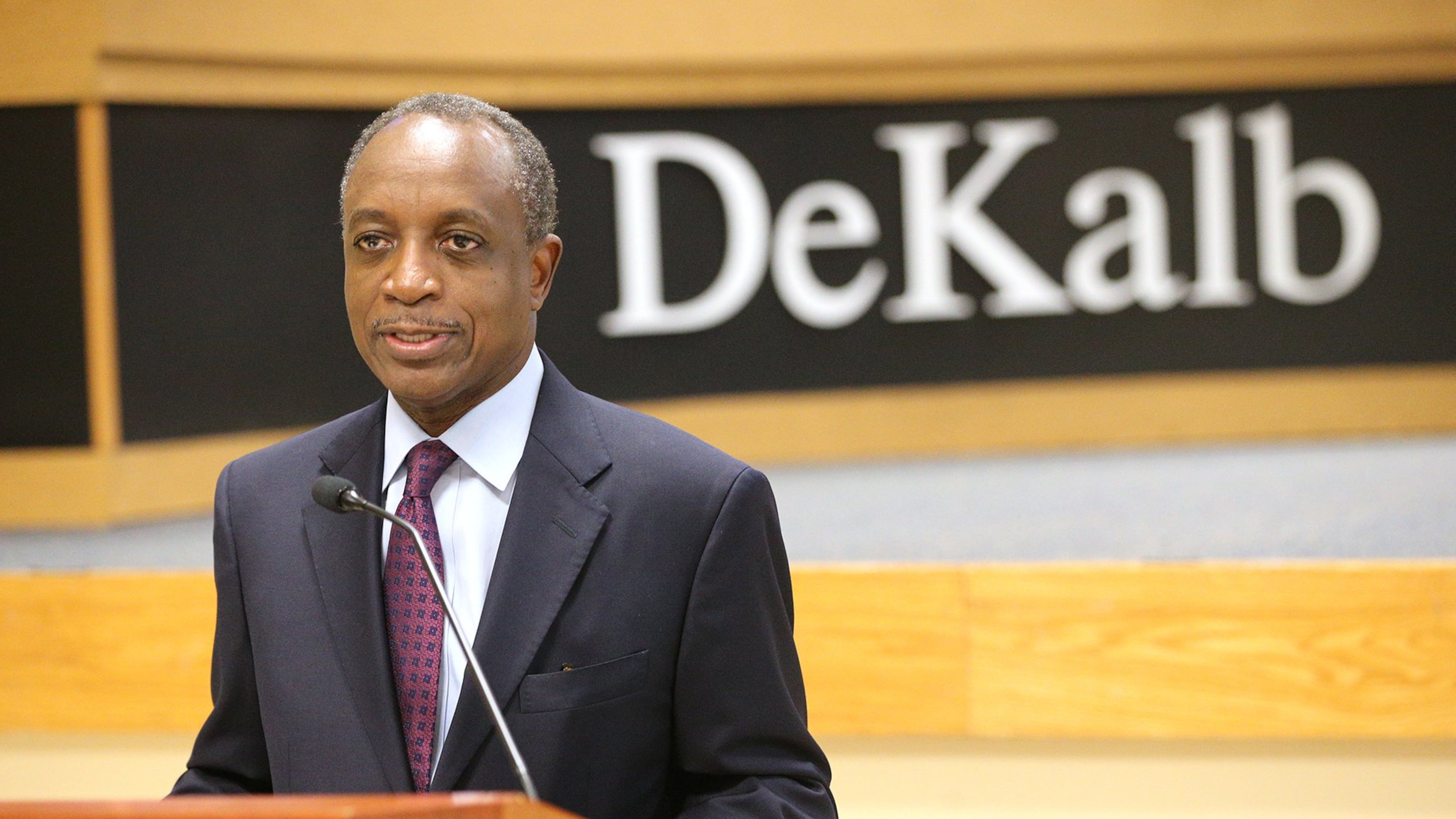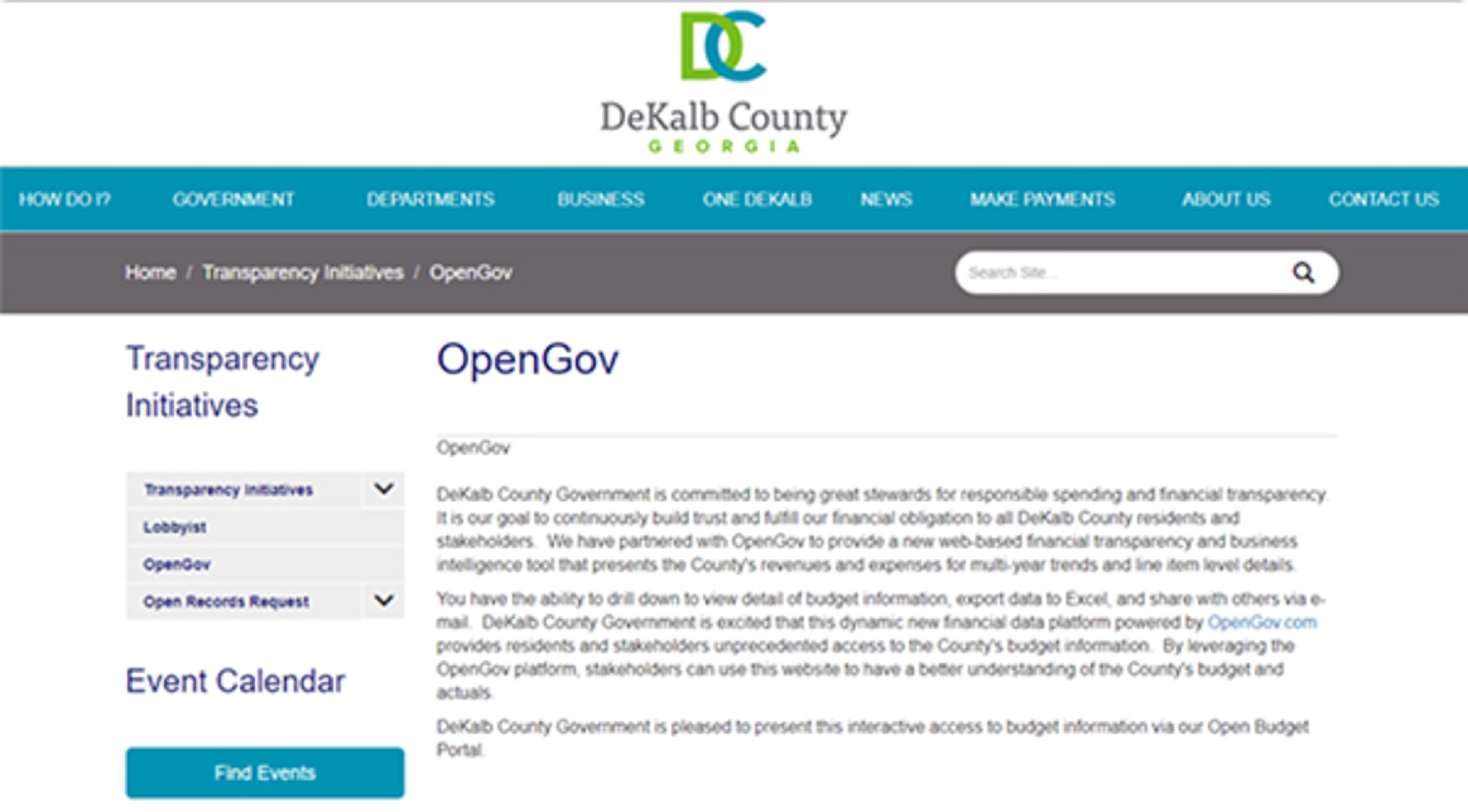DeKalb promised more transparency; still a work in progress

Three years after DeKalb County announced a plan to give residents unprecedented access to how their tax dollars are spent, county officials have not made good on that promise.
The transparency initiative fell through the cracks as leadership changed and county officials’ focus shifted to other priorities like the water and sewer system improvements and implementing a SPLOST tax.
VIDEO: Previous coverage of DeKalb government
In 2015, interim DeKalb CEO Lee May approved a contract with a company that took financial information and turned it into a colorful, user-friendly website.
“During that time, there were a lot of challenges regarding the finances of the county and people’s confidence in the work that the county was doing,” May said recently. “One of our efforts was to begin opening up our finances where people could actually see what was budgeted and ultimately get to the point where people could also see the expenditures almost in real time.”
May had taken over as CEO in 2013 after Burrell Ellis was indicted on corruption charges and suspended from office. During his tenure, a special investigator described DeKalb's government as "rotten to the core" with bribery, questionable spending and misconduct.
May hoped that hiring OpenGov to facilitate the transparency initiative would improve public perception. The contract was worth $29,500 annually for three years.
OpenGov has other customers in Georgia, including the cities of Alpharetta and Roswell. It's DeKalb site once included charts that showed various categories and subcategories of spending and revenue. May planned to spend money adding a feature that would have allowed residents to review county payments to vendors.
It never happened while he was in office, and in November 2016, Michael Thurmond was elected CEO. The OpenGov agreement quietly expired this year.
Thurmond has taken a different approach.
He hired consulting firm Deloitte to update the county's antiquated business systems for budgeting and planning. It is implementing a system that will be used to forecast expenses, create the county budget and track spending. The contract is worth up to $747,000 for software and manpower.
The CEO’s office said the program, called Hyperion Planning and Budgeting Cloud Services, will also allow for some financial information to remain online. But he has not decided how much detail about county finances will be available to the public.
“I’m not going to commit to a single program, but I will commit to pursing any and all opportunities to increasing transparency and accountability,” Thurmond.

Once The Atlanta Journal-Constitution began asking questions about DeKalb's transparency website, it was changed. Old links and references to OpenGov were deleted. It now consists of references to budget documents, Board of Commissioners meeting documents and purchasing information.
The CEO’s office said that DeKalb must first modernize its business systems before more can be done. Putting financial databases online can be costly, and the county would have to weigh any decisions about transparency against other priorities.
Atlanta Mayor Keisha Lance Bottoms recently did just that. She announced earlier this month the launch of Atlanta's Open Checkbook website for the public to dig into spending decisions. Bottoms' pledged to improve transparency as the city is the subject of a federal corruption investigation.
“This is something that is unprecedented in the city of Atlanta, and the likes of it have never been done by our government,” she said during a news conference announcing the site launch.
More information, such as purchasing card spending, may be added to the site. Other Metro Atlanta governments say that they would like to do something similar, if they can make it work.
Gwinnett spokesman Joe Sorenson said the county considered adopting a type of “open checkbook” program several years ago but the cost was prohibitive. He said all purchases and contracts that rise to the level of Board of Commissioners approval are posted online, though, through meeting agendas, agenda packets, budget information and other documents. Generally speaking, purchases of $100,000 or more require commission approval.
Records of all other government purchases, including those that require only departmental approval or the signature of the county administrator, aren’t automatically put online but are available to anyone who requests them, Sorenson said.
Fulton County has an open data committee that is studying how to put more financial information online. The county is in the process of testing plans to upload to its platform payroll, expenditure and budget information and in the future would also like to add capital spending, a spokeswoman said.
DeKalb County commissioners said they were unaware the OpenGov contract expired and wanted more information about Thurmond’s vision for transparency. Commissioner Kathie Gannon said May never followed up after a splashy introduction to OpenGov.
Now, she wants commissioners to be included in the discussion with Thurmond
“I have been to meetings and it’s come up over and over again,” Gannon said. “With the technology that is available today, why all this stuff just isn’t online.”
Staff writers Arielle Kass, Mark Niesse and Tyler Estep contributed to this report.



